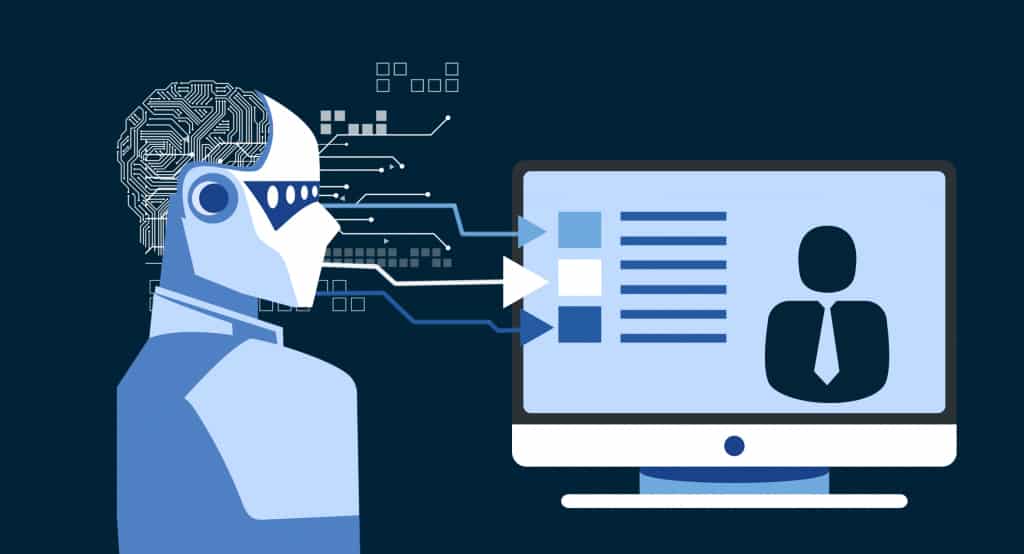Imagine you go to a chat-like experience like chat.openai.com and put in the following prompt “looking for a data science engineering with X years of experience with these technologies to interview with our company” and instead of the tool spitting back some text about data science, a job description or other information it responds back “I am on it!”.
Likely the chatbot’s copy will look way different (or not), but what you just kicked off was the new recruiting autonomous agent that will scour the earth to find you a data scientist based on your prompt and a job description. The “agent” will review their background to see if they are qualified (maybe even share their profile first with you to “learn”), then reach out to see if that person is interested, all resulting in a phone screen with one of your recruiters next week.
Sound like science fiction?
Well, in the near future I think it will be the reality how recruiting functions will source candidates. As the buzz intensifies around OpenAI’s speculated November 6th unveiling of autonomous agents, it’s pivotal to grasp the implications for recruiting and the broader job market. An autonomous agent is a digital aide capable of decision-making without incessant human intervention, heralding a new era of recruiting.

Key Attributes of Autonomous Agents
- Independence: They operate without continuous human oversight, embodying a significant leap toward automation. This attribute allows recruiters and HR professionals to focus on strategic tasks while the AI handles routine chores.
- Learning Capability: With the ability to learn from experience, these agents can continually refine and enhance recruitment processes. They learn from past interactions, improving their performance over time, which is crucial for adapting to the fast-paced evolution of job markets.
The Promise and Pitfalls
Like any technology, autonomous AI agents bring a mixed bag of benefits and challenges:
Pros:
- Efficiency: By automating mundane tasks, they liberate human recruiters to engage in more nuanced, strategic activities. This efficiency extends beyond just time-saving; it also manifests in cost reductions and better allocation of human resources.
- Reduced Bias: With the potential to base decisions on predefined, objective criteria, they could mitigate human biases inherent in recruiting. This holds the promise of more equitable hiring practices.
Cons:
- Ethical Concerns: The notion of machines making life-altering decisions sparks significant moral deliberation. Accepting AI in such crucial roles is a societal challenge that needs addressing.
- Data Dependence: The efficacy of these agents is intrinsically linked to the quality of training data, which might also harbor biases. Ensuring diversity and accuracy in data is a significant hurdle.
- Transparency: For wide acceptance, the decisions made by AI need to be transparent and understandable to both candidates and employers. This calls for advancements in explainable AI technologies.
Real-World Applications: A Broader Spectrum
Various sectors are already harnessing AI agents in their recruiting endeavors:
- Electrolux: Utilized AI to streamline candidate matching and expedite the hiring process, seeing a substantial decrease in time-to-hire.
- Cigna: Employed AI to foster internal mobility, enhancing employee retention significantly.
- Kuehne+Nagel: Embraced AI for internal recruitment, accentuating career grow,th and internal mobility.
- Brother International Corporation: Employed AI to bolster their brand presence, attracting quality candidates through personalized job recommendations and engaging chatbots.
- Infosys: Under the Reskill and Restart program, AI has been pivotal in connecting employers and trainers with job seekers based on skills, enabling hundreds to reskill for fruitful careers in tech.
- General Adoption: Numerous other companies are increasingly recruiting staff using AI-based algorithms, although concerns about bias and reliability in personality assessments remain.
Technological Complements and Standards
The rise of autonomous agents in recruiting is paralleled by advancements in related technologies like Natural Language Processing (NLP) and machine learning algorithms. These technologies enhance the ability of AI agents to understand human language, assess candidates more accurately, and provide a more human-centric recruiting experience.
Furthermore, developing and adhering to ethical standards and best practices in AI recruiting is crucial. Organizations like the IEEE have proposed guidelines for ethically aligned AI, which could serve as a foundation for ensuring that autonomous agents’ deployment in recruiting adhere to ethical, legal, and societal norms.
The prospective launch of autonomous agents by OpenAI symbolizes a captivating, perhaps tectonic, shift in the recruitment industry. As November 6th looms, recruiters and job aspirants should brace for transformative alterations. While these agents are touted to revolutionize hiring by enhancing efficiency and potentially reducing bias, they also usher in ethical and operational quandaries that require thorough examination.
The discourse surrounding these autonomous agents must be expansive and profound, encompassing all stakeholders. In doing so, we can traverse the complex yet thrilling landscape that beckons, ensuring the evolution of recruiting aligns with ethical, transparent, and inclusive principles.


